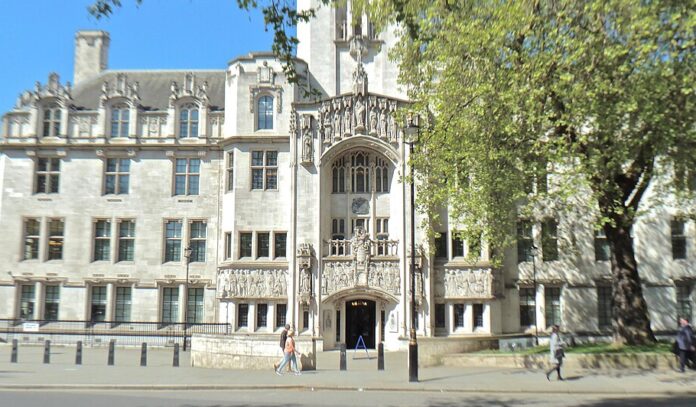UK Supreme Court’s ruling clarifies that the legal definition of a woman is based on biological sex, with implications for single-sex services and protections
The UK Supreme Court has ruled that the legal definition of a woman, as outlined in the Equality Act 2010, is determined by biological sex, not gender identity. In a unanimous decision, the court clarified that sex is binary and rooted in biology, meaning individuals who are not born female cannot access sex-based protections under the Act simply by obtaining a Gender Recognition Certificate (GRC).
This landmark judgment arose after the Scottish government included transgender women with a GRC in quotas for gender-balanced public sector boards, which sparked legal challenges. Campaign group For Women Scotland argued that sex-based protections should apply solely to individuals born female. The court sided with For Women Scotland, stating that the law’s interpretation of “sex” is based on biological factors.
Despite this, the ruling also reaffirmed that transgender people continue to have legal protections against discrimination. The judgment does not intend to engage in the broader societal debate over gender identity but rather seeks clarity on the application of the law concerning sex-based rights.
Dr. Michael Foran, a public law expert, explained that the court’s decision provides clear guidelines on the meanings of “man,” “woman,” and “sex” in the Equality Act, underscoring that these terms are linked to biology. He emphasised that this decision does not strip transgender individuals of their legal rights but highlights that exclusion from female-only spaces, where legally permissible, is lawful.
The ruling has sparked mixed reactions. For Women Scotland expressed gratitude, viewing the judgment as a victory in their legal battle. However, Scottish Trans, a charity advocating for transgender rights, urged people not to panic, stressing that the decision primarily clarifies legal definitions rather than altering transgender rights.
The Scottish government, while acknowledging the ruling, stated that it acted in “good faith” and would collaborate with Westminster to understand the full impact of the judgment on future policies.
THE GUARDIAN
The UK Supreme Court’s ruling excluding trans women from the legal definition of women under the Equality Act has sparked strong reactions. Gender-critical campaigners, like Susan Smith of For Women Scotland, celebrated the verdict as a “huge reset,” providing clarity and affirming women’s rights to single-sex spaces. Campaigners like Maya Forstater expressed relief and vindication, believing the ruling supports their stance on sex-based rights. However, transgender rights activists, including Victoria McCloud, condemned the ruling, warning it marks the beginning of a broader attack on trans rights. Ellie Gomersall, a trans activist, expressed deep concern, seeing the judgment as another blow to trans people’s legal recognition. The ruling is seen as a victory for gender-critical ideologies, but both sides brace for further struggles as the debate over trans rights intensifies. The decision highlights growing tensions between protecting women’s spaces and ensuring trans people’s rights.
THE TELEGRAPH
Following the UK Supreme Court ruling that excludes trans women from the legal definition of women, several public figures have expressed their support for trans women. Prominent figures like Daniel Radcliffe, Emma Watson, and Sir Elton John have consistently voiced their belief that “trans women are women.” Emma Watson, in particular, emphasised that trans people should be accepted for who they are. Politicians such as Sir Keir Starmer have also expressed support, though his stance has evolved over time. Celebrities like Jameela Jamil and Kylie Minogue have also advocated for trans rights, particularly in relation to access to women’s spaces. Other figures, including Eddie Redmayne and Zendaya, have voiced their commitment to inclusive feminism. In contrast, some, like Sir David Tennant, have strongly criticised gender-critical views. This ongoing debate highlights the tensions between legal definitions and the recognition of trans identities.
